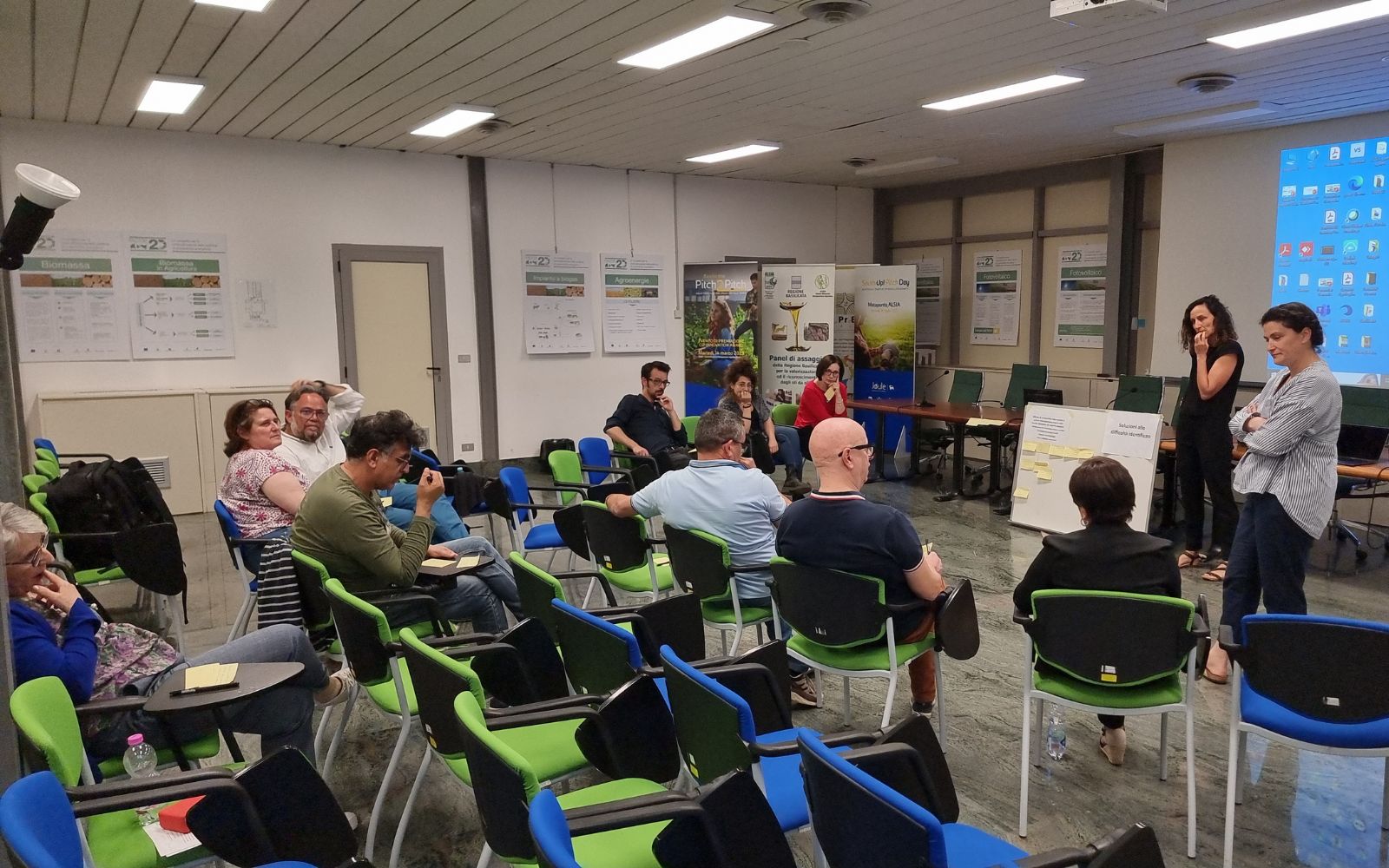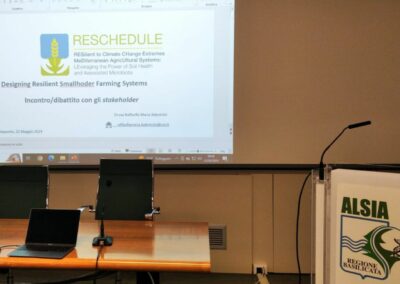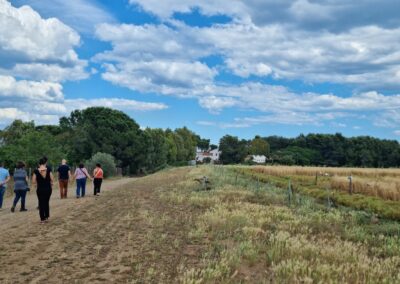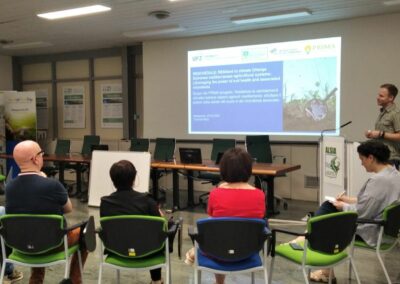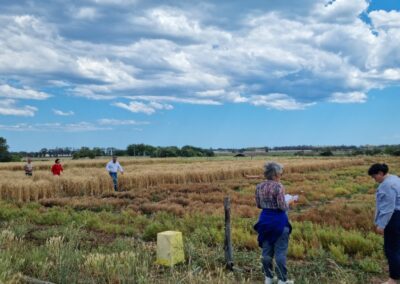RESCHEDULE project discusses soil health in Italy
On 22 May, ALSIA[a] Institute in Italy hosted a workshop of the RESCHEDULE project, which focused on management options to improve soil health for a more resilient agricultural system in the Mediterranean, one of the European regions most affected by climate extremes.
MED was represented in this workshop trough the researcher Helena Guimarães who mentioned that “the design of the workshop was challenging since most of our work is developed in the Portuguese context. However, the support provided by all involved helped identify the challenges farmers face in transitioning to management practices with clear long-term benefits that require immediate investment. The information collected will contribute to the urgent and ongoing discussion on improving the current Agricultural Knowledge Innovation Systems to achieve European soil health objectives.”
According to Francesco Cellini, director of ALSIA “Hosting this type of workshop is part of the Institute’s strategy to support farmers in the difficult task of maintaining agricultural activities while climate-related challenges increase”.
The workshop provided an opportunity for the sector to engage with RESCHEDULE partners. In the words of Raffaella Balestrini, director of IBBR[b]: “RESCHEDULE was an opportunity to gather more evidence of the importance of soil microbiota and strategies to improve it” and Fabiano Sillo, (IPSP[c] researcher), added, “Although long-term studies are difficult to finance, our results indicate that intercropping practices and the use of biostimulants offer significant benefits and can improve production yields.” Although the German context might, at first glance, appear very different, Thomas Reitz (UFZ[d] researcher) highlighted that “Our institute is in a region of Germany facing comparable challenges with the Mediterranean region, with precipitation values of 254.0 mm in 2018. Our studies indicate that microbial communities can enhance crop resistance as the frequency of extreme climatic events increases, which is important for any affected region.”
RESCHEDULE (RESilient to Climate CHange Extremes MeDiterranean AgricUltural Systems: LEveraging the Power of Soil Health and Associated Microbiota) is a PRIMA project led by Tecnhnical University of Crete, with the University of Évora as a partner. RESCHEDULE started in 2021 and it is in its final year of development. Over the past three years, it has focused on improving the resilience and sustainability of Mediterranean smallholder farms to climate change and climate extremes. The project has developed science-based interventions that can be locally adapted through user-friendly decision support systems. These systems enable stakeholders to understand complex interactions and make informed decisions regarding the sustainable management of farming systems.
- a) ALSIA – Agenzia Lucana di Sviluppo e di Innovazione in Agricoltura
- b) IPSP – Institute for Sustainable Plant Protection, CNR – National Research Council of Italy
- c) IBBR – Institute of Biosciences and Bioresources, CNR – National Council of Research
- d) UFZ – Helmholtz Centre for Environmental Research GmbH
